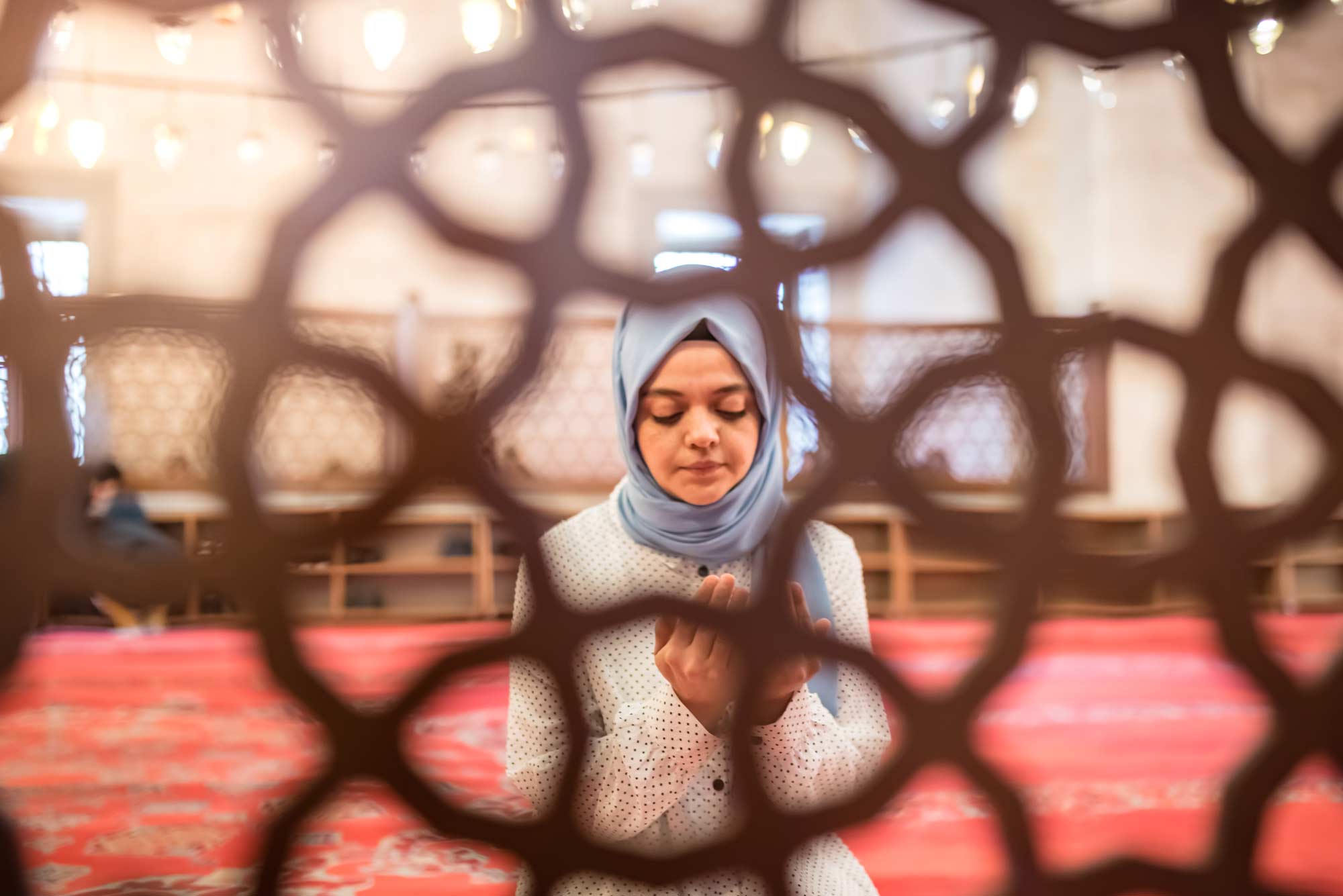A Female Doctor in the Prophet’s Mosque
The following Hadith requires scrutiny as it clearly indicates that we, the Muslims, have deviated much from the Sunnah regarding women’s status and role in mosque:
9. It was narrated from Mahmoud ibn Labid that he said: When Sa`d received a wound (of an arrow) in his arm vein, he could hardly move and then he was referred to a woman called Rufaydah, who used to treat the wounded (in the Mosque).
Hence, when the Prophet passed by him (in the evening), he would ask him, “How are you this evening?” and (in the morning), “How are you this morning?”
And Sa`d would tell the Prophet how he felt.[9]
A woman won an argument with `Umar
Things remained as such after the lifetime of the Prophet (peace and blessings be upon him); the story of `Umar regarding women’s dowries is well known. According to this story, `Umar ascended the Prophet’s pulpit one day and said to the people,
“Why do you go to excess in women’s dowries though during the lifetime the Prophet, the Companions used to pay 400 dirhams or less in dowry?
If increase in the dowries were a sign of piety or honor in the Sight of Allah, you would have not surpassed them (the Companions; in this regard).
So, let me not hear that a man paid a woman a dowry of more than 400 dirhams”.
He got down the pulpit, and then a woman from Quraysh (described in another narration as flat-nosed, tall woman) intercepted him and said,
“O Commander of the Believers! Do you forbid the people to pay more than 400 dirhams as women’s dowries?”
He answered, “Yes”.
She replied, “Did you not hear what Allah said in the Qur’an (about it)?”
He wondered, “Which verse (you mean)?”
She answered, “Did you not hear Allah’s saying,
{… and you have given one of them a Qintar [great amount; in gifts], do not take [back] from it anything. Would you take it in injustice and manifest sin?} ? (An-Nisa’ 4: 20)”
He said,
“O Allah, I ask You for pardon! All people are more knowledgeable than `Umar (referring to himself; another narration reads that he said, ‘A woman was right while a man (`Umar) erred’).[10]
The practice of pitching tents in mosques for `Itikaf and for other social purposes continued; Abdullah ibn Az-Zubayr pitched a tent where some women tended the wounded and fed the hungry, as is recorded in history books.
[1] Al-Bukhari’s Sahih, chapter on Funerals, 479/3, till the word “clamored”, and then An-Nasa’y narrated the rest in his Musnad, 200/7, through the chain reported by Al-Bukhari.
[2] See Malik’s Al-Muwatta’, 24/1, and Ahmad’s Musnad, 103/2, and the report includes “And they would start it (ablution) together”. See also An-Nasa’i’s Sunan, chapter on purification, section on men and women performing ablution together, 57/1, and Ibn Khuzaymah’s Sahih, 63/1.
[3] Abu Shaybah’s Musannaf, 319/6.as
[4] Jami` Bayan Al-`Ilm Wa Fadlihi, 375/1.
[5] Al-Mu`jam Al-Awsat, 158/6. It was also narrated by An-Nasa’i from Anas, 400/2.
[6] Muslim’s Sahih, chapter on the two `Eid Prayers, 603/2.
[7] Al-Mu`jam Al-Kabir, 173/24.
[8] Ibn Abu Shaybah’s Musannaf, 391/4.
[9] Al-Bukhari’s Sahih, chapter on Maghazi (Battle), 416/8. See also Ibn Hajar’s Fat-h Al-Bari, 415/8, Muslim’s Sahih, chapter on Jihad, 160/5, and Al-Bukhari’s Al-Adab Al-Mufrad, 385. Al-Albani verified it as “authentic”.
[10] Ibn Kathir’s Musnad Al-Farouq, 573/2, and Abu Ya`la’s Az-Zawa’id, 335/2.
Pages: 1 2 3 4
